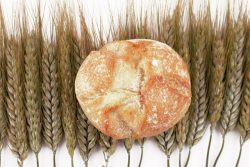It seems to be an almost daily occurrence I am hearing or reading about correlations between specific consumables and better health, whether it is the acai berry, resveratrol or the previously disparaged coconut oil. While some “superfoods” wax and wane in popularity, the benefits of consuming tea continues to intrigue academics, medical professionals and the general public alike. Countless studies have been conducted in order to prove there is a solid relationship between tea consumption and lowering blood sugar levels, or that tea can serve as an inexpensive, alternative method for prevention of diabetes and its pre-diabetic metabolic precursors.
Specifically, I think it is important to sort out the relationship between managing diabetes and how tea can serve as a useful tool in doing such. Diabetes is a complex, chronic disease which, essentially, develops when the pancreas produces too little insulin (Type I) or one’s body can no longer respond to insulin (Type II). Diabetics suffer from blood sugar levels above the healthy range, and when left untreated, can result in a number of debilitating complications. Type II Diabetes, the type which develops usually in adulthood, heavily depends on our lifestyle choices (e.g., diet and exercise). According to the American Diabetes Association, 25.8 million Americans (adults and children), or 8.3% of the population, suffer from diabetes as of 2011. The World Health Organization (WHO) estimates that over 347 million individuals worldwide are diabetic, and approximately 90% of this number has Type II Diabetes.
As an undergraduate, I had the pleasure to conduct research regarding the relationship between Diabetina, an herbal tea blend from Mexico, and blood sugar levels in normal glycemic-level individuals. Although my results were statistically inconclusive, I did notice that Diabetina and black tea consumption (which my participants consumed for a total of 16 weeks) resulted in lower, healthy blood sugar levels. A number of studies concerning black or green tea consumption and blood sugar have proven to be rather promising. A 2012 academic article published in BMJ Open and reviewed in The Huffington Post and WebMD suggests that countries with high black tea consumption patterns have significantly lower rates of diabetes. Nations known for high tea consumption such as Ireland, UK and Turkey enjoyed the lowest levels of diabetes out of the 50 countries surveyed in this study. Green tea and black have both been touted as useful for lowering glucose levels, and in rat studies, have proven to inhibit diabetic cataracts.
It is perfectly acceptable to wonder, what is it about tea that works with lowering our blood sugar? Black, green and oolong teas all are derived from the Camellia sinensis plant and are known to contain polysaccharides which prevent absorption of glucose (sugar) in the body. The relationship between the human race and tea consumption stretches back for at least 5,000 years and has enjoyed a long, colorful life, stemming from its supposed invention by the Chinese Emperor Shennong and has been a prominent member of European history since the late 16th and early 17th century. Not only has the ancient ritual of tea drinking been cultivated for millennia, tea consumption may serve as a healthful participant within a well-balanced diet.
In consideration of everything I have previously mentioned, some current research suggests that one must consume a good amount of tea in order to prevent or reduce one’s risk of diabetes. A European meta-analysis published in May 2012 suggests that consumption of four or more cups of tea a day is associated with a 20% lower risk of diabetes. Those who drink one to three cups of tea daily did not lower their risk of diabetes, comparable to non-tea drinkers. Green tea especially is credited as beneficial for a number of functions, such as deactivating free radicals and boosting metabolism.
We live in a world of modern medicine and often, natural methods of healing are overlooked or dismissed. Perhaps we shouldn’t be so quick to overlook these remedies. As the Pacific College of Oriental Medicine states, “green tea is not a cure for diabetes, but a natural gift for restoring balance in the human system and removing unwanted toxins accumulated from the internalizing of the environment.” In other words, tea may not cure diabetes, but it could be a part of healthy lifestyle, and as my research demonstrated, it might just lower your blood sugar.
This post was published previously in January 2013.













